GOALS & RESULTS
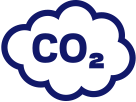
- Develop business activities to combat and respond
to climate change
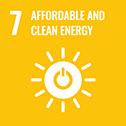
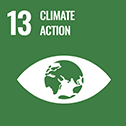
To combat global climate change, YKK commits to GHG emissions reduction targets to achieve climate neutrality by 2050 and support the Paris Agreement, which seeks to limit global warming to 1.5°C above pre-industrial levels. Additionally, YKK will adapt to climate change and respond by developing stable business activities.
(By 2030)
- Reduce emissions of CO2 and other GHGs in our company and supply chains.
- Scope 1+2: 50% reduction (from FY2018 baseline)
- Scope 3: 30% reduction (from FY2018 baseline)
- 100% of electricity used is renewable energy
(By 2050)
- Aim for zero GHG emissions (Net Zero).
- Reduce energy consumption through improved manufacturing methods and equipment, streamlined operations and processes.
- Install renewable power sources at Fastening Business locations where feasible.
- Reduce our Scope 2 emissions by purchasing external renewable energy where possible.
- Reduce our Scope 3 emissions by switching to more sustainable materials.
- By 2025, abolish all coal use in YKK facilities.
- Reduce risks associated with climate-related disasters (flooding, heat waves, reduced precipitation, etc.)
- Build supply chains that take climate change-related disaster risks into account.
| FY2024 results | FY2025 plan |
|---|---|
|
|
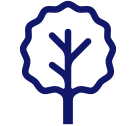
- Achieve manufacturing
that increases the sustainable use of resources
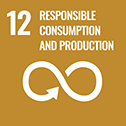
In the Fastening Business, we will reduce the environmental impact of the products that we make and the packaging that we use, and shift to sustainable materials, in order to reduce waste and the use of petroleum derived materials throughout the lifecycle of our products. We will help achieve a circular society, protect ecosystems, and engage in enriching activities.
(By 2030)
- Switch to 100% sustainable textile materials for fastening products (recycled materials, naturally-derived materials, etc.).
- Replace all vinyl/plastic packaging materials with sustainable packaging, including recyclable/reusable forms, in the Fastening Business.
- Sustain a waste recycling rate of at least 90%.
- Reduce the amount of waste to be landfilled or incinerated at all production sites.
- Promote procurement that takes biodiversity (environmental issues) into account.
- Contribute to resource recycling by implementing manufacturing and product design that reuses resources and avoids producing waste. Focus product design on improving durability, making products repairable, and recyclable.
- Develop fastening product resource recycling technologies.
- Engage in ecosystem conservation activities.
| FY2024 results | FY2025 plan |
|---|---|
|
|
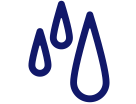
- Achieve sustainable use of water
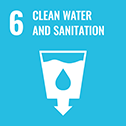
With the goal of sustainable water usage, reduce the load on local communities and ecosystems by reducing water intake and strengthening wastewater management according to regional circumstances.
(By 2050)
- Reduce water intake by 30% (from FY2018 baseline)
- Reduce water intake through initiatives such as streamlined use/reuse of water.
- Strictly manage wastewater at all manufacturing sites in accordance with government regulations and YKK in-house standards, which are based on industry standards such as ZDHC (Zero Discharge of Hazardous Chemicals).
- Reduce water risks at manufacturing sites.
| FY2024 results | FY2025 plan |
|---|---|
|
|
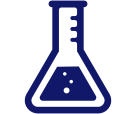
- Management and reduction
of chemical substances
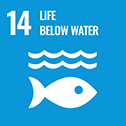
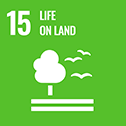
We will work to minimize the impact on the natural environment and people by appropriately managing and reducing the amounts of chemical substances we used to help ensure a healthy environment for future generations.
(By 2030)
- Promote reductions of harmful chemical substances.
- Establish our own standards (YKK RSL) for managing the use of chemical substances in all products and manufacturing processes, and promote the reduction of harmful chemical substances via ongoing risk communication with stakeholders.
- Ensure compliance with industry standards utilizing OEKO-TEX® STANDARD 100 and AFIRM RSL for products standards, and our own standards based on ZDHC MRSL for manufacturing process management standards. Mandate compliance with industry standards at our locations around the world.
- Develop new production methods that reduce the use of hazardous chemical substances and that lower environmental impacts while maintaining product quality.
- Formulate air and soil pollution countermeasures when using hazardous chemical substances. Help protect the global environment through use of these countermeasures.
| FY2024 results | FY2025 plan |
|---|---|
|
|
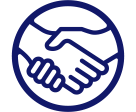
- Upholding human rights and ensuring fair,
safe work environments
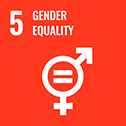
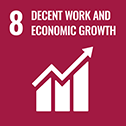
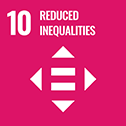
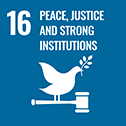
YKK believes in the universal philosophy of respecting the dignity and rights of all human beings and is committed to contributing to a diverse and sustainable society.
- By valuing diversity, being inclusive, respecting human rights, and improving the work environment, we will create better and safer workplaces throughout our supply chains. We will ensure that everyone can work with peace of mind, make the most of his or her individuality, and lead a healthy and happy life.
- Enact improvements based on changing societal demands and implement ongoing YGCC audits based on the YKK Philosophy of the CYCLE OF GOODNESS® and UN Guiding Principles on Business and Human Rights.
| FY2024 results | FY2025 plan |
|---|---|
|
|
- *1Numerical corrections were made due to revision of the calculation method. Not expected to be used in FY2025.
- *2The Copper Mark certification is an international framework for responsible production and contributing to the UN SDGs in the copper industry.
- *3Due to the use of water resources for environmental measures at the Kurobe Makino Plant in FY2024.
- *4The Zinc Mark certification is an international framework for responsible production and contributing to the UN SDGs in the zinc industry.
- *According to the definition of "recycling" under Japanese law, it includes both material recycling and thermal recovery.
